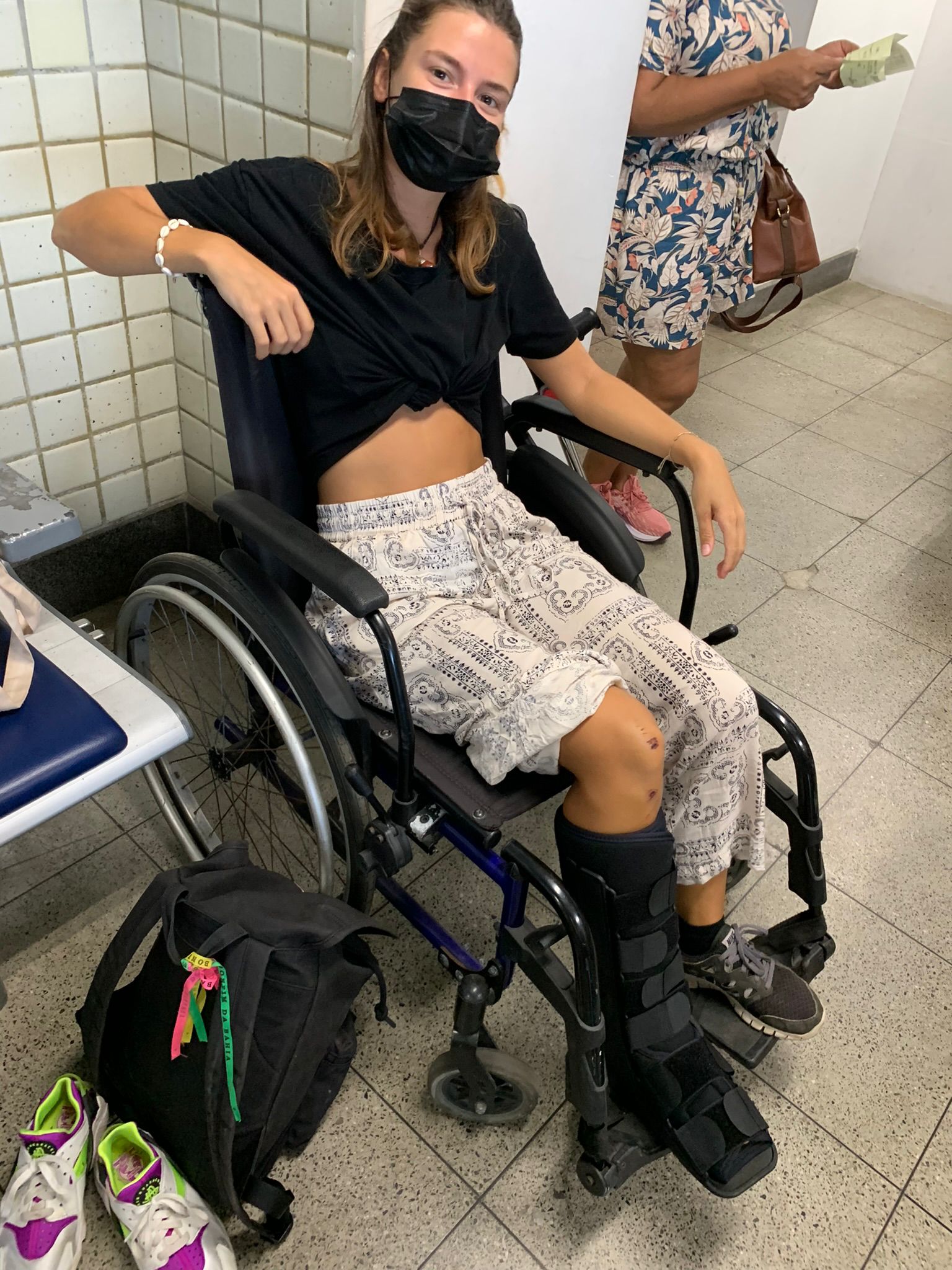You feel transported, and you are: this is the trip of a lifetime.
That’s when it happens. Making its way around a tight corner, your horse slips and crashes to the ground with your leg trapped underneath. You feel a sickening crack and your foot feels like it’s on fire.
It can only take a split-second for things to go wrong when you’re travelling. When it does, the consequences can be severe and life-changing.
The number one risk
When you travel overseas, depending on the destination, you can dramatically increase your risk of illness or injury.
While statistics on the leading causes of travel accidents vary depending on the nationality of travelers, we can draw some conclusions from leading US experts.
For example, the CDC identified road accidents as the leading non-violent cause of death of US citizens overseas between 2015 and 2016, with drowning also a leading cause. The prestigious John Hopkins University also states that the risk of injury for travelers overseas greatly increases the moment they take control of a means of transport.
Considering the number of travellers who use vehicles, such as cars or mopeds, or ride horses on their holidays, it’s no surprise many place themselves in danger of serious injury or worse.
Silvana’s story
Silvana Beer, an executive from Switzerland, knows this only too well. It was she who, while recently on holiday near Itacare on Brazil’s beautiful Costa del Cacao, was horse-riding when her mount slipped and her foot was crushed by the falling horse.
She tells us: “I was travelling with a friend in Brazil and we had spent an amazing month there. We were on a horse riding trek and it was magic. I liked the pace of it, and enjoyed watching the scenery.
“However I’m not a very experienced rider – I only go on horse-riding trips when I’m abroad. I didn’t really have the horse under control and it slipped, as the ground was very wet. Suddenly, my foot was under the horse and, as it turns out, horses are pretty heavy!
“I knew immediately that my foot was broken, but I still decided to get back on the horse and go back to our accommodation. When I got back, I made the mistake of taking off my shoe – it’s better to keep injuries like this compressed, so they don’t become inflamed.”
When Silvana eventually made it to the local hospital she had a small shock as she realised that they didn’t have a functioning X-ray machine. “That was the first time where I thought with more than a little fear, ‘Okay, where am I? What should I do?’
Brazil’s healthcare can vary hugely with hospitals and clinics in more rural areas often lacking the kind of equipment and resources that would be commonplace in bigger cities, or other parts of the world.
Eventually we found a private clinic where I was able to have an X-ray done. But there was no doctor on duty to assess it, so we took the X-ray to try and find another doctor to look at it.”
Silvana visited multiple orthopaedic clinics, and finally ended up at a public hospital where she had to wait hours before being seen by a doctor who could evaluate her X-ray.
“The doctor confirmed my initial fears that my foot was broken. He then was fairly blunt in his further recommendation: ‘Can you fly home? If so, don’t stay here. Just go.”

“If a doctor recommends you to go to another country for medical reasons, you do what they say, and so I left. I was very, very lucky to have help from my friends. Because if I was alone, I don’t know how I would have managed the situation and I’m very grateful that it was just my foot – it could have been much worse.”
Thankfully Silvana had an international health insurance policy with ASN, that covered accidents.
“Once I got through to ASN, they dealt with it in a very professional manner,” says Silvana. “They booked me a ticket back home in business class so I was comfortable and they also organised transport at each airport and provided a wheelchair for me, all covered by my policy.”
Comprehensive cover that you can rely on
If you’re considering an adventure such as Silvana’s, it’s important to consider what might happen if you suddenly injure yourself. Disparities in the kind of healthcare available in various regions could result in injuries being made more severe, or taking longer to heal, therefore slowing you down and having significant consequences.
As Silvana states, “I would really recommend having an international health insurance provider that offers accident insurance. It definitely makes sense if you’re travelling overseas for a few months.
“Having grown up in a country like Switzerland with a very high quality standard of medical facilities, you might prefer being treated in a private hospital rather than in a public one when you get sick or injured in a foreign country. Another benefit of having an international health insurance policy with an insurance broker such as ASN is that you can focus on the healing process and don’t need to deal with the claims handling yourself.”
As an international health insurance broker of more than 26 years, ASN has comprehensive packages for those who wish to explore the world, whether it’s part of a prolonged trip abroad, a relocation or otherwise.
They offer a free choice of doctors and specialists, with their own recommended network of healthcare providers to help get you back on your feet. The hotlines of these providers are open 24/7 and are available in a number of languages, and wherever you are, there’ll be support and assistance available when you need it.
Only a few weeks after her horse riding accident, Silvana is back in South America, this time in Colombia, continuing her adventure. She credits the rapid response of ASN’s insurance partner to her injury for being able to continue doing what she loves – exploring the world!
She concludes: “After seven weeks back in Switzerland and very intensive physiotherapy, I’m doing a lot better. Now I am travelling again – and this time I’m being more aware of the risks!”



 Please whitelist us to continue reading.
Please whitelist us to continue reading.